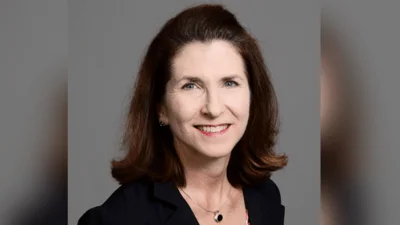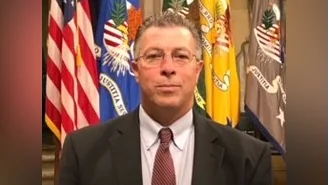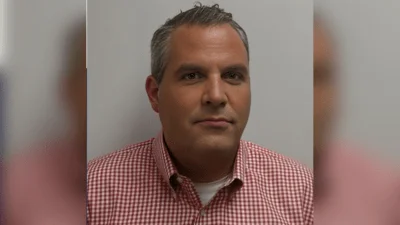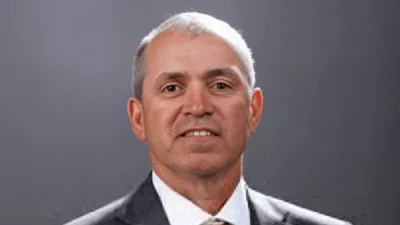The Congressional Record is a unique source of public documentation. It started in 1873, documenting nearly all the major and minor policies being discussed and debated.
“BUDGET RECONCILIATION” mentioning Chuck Grassley was published in the Senate section on pages S1004-S1006 on March 3.
Of the 100 senators in 117th Congress, 24 percent were women, and 76 percent were men, according to the Biographical Directory of the United States Congress.
Senators' salaries are historically higher than the median US income.
The publication is reproduced in full below:
BUDGET RECONCILIATION
Mr. THUNE. Mr. President, less than 2 months ago, President Biden emphasized a theme of unity at his inauguration.
``Today, on this January day, my whole soul is in this,'' he said.
``Bringing America together. Uniting our people. And uniting our nation.''
Admirable words, but so far they haven't been met with much action. On the first big legislative test of his Presidency, coronavirus legislation, President Biden and Democrats in Congress have pursued a resolutely partisan course.
They have not only failed to invite Republican input in any meaningful way, they deliberately excluded it by passing their coronavirus package using budget reconciliation.
This allows them to pass the bill in the Senate by a simple majority vote, instead of requiring the concurrence of 60 Senators to move to a vote on the bill, which is typically how legislation is passed here in the Senate, including the five coronavirus bills that we passed last year, when the Republicans had the majority here in the Senate.
Now, Democrats' decision to use reconciliation might be understandable if Republicans had declared our opposition to any further coronavirus legislation, but, of course, that is not the case.
Republicans made it clear that we were willing to work with Democrats on additional coronavirus legislation. In fact, 10 Republican Senators put together a plan and met with President Biden for 2 hours to discuss a bipartisan agreement. But while the President listened to them graciously, Democrats and the President quickly made it clear that they intended to move forward without Republican input.
Two days after Republicans met with President Biden, the House passed its partisan budget resolution to pave the way for reconciliation here in the Senate. Two days later, the Senate followed suit.
Clearly, there were no plans to let negotiations with Republicans slow down the partisan juggernaut. In fact, Democrats have been pretty determined to make sure Republicans don't have a voice in this legislation at all.
During markups of the COVID relief package in House committees, Republicans offered a number of amendments: 245 amendments, to be exact. Out of those 245 amendments, Democrats accepted exactly one for the final bill--one.
Among the amendments House Democrats rejected were commonsense proposals to tie school funding to the reopening of schools. There was an amendment to unfreeze funding for the Coronavirus Food Assistance Program for farmers and ranchers. There were amendments to target funding to overlooked rural communities and an amendment to protect healthcare providers from frivolous lawsuits.
The one thing that can be said for the House is at least it gave Members in the House a chance to review the bill in committee. Here in the Senate, Democrats' COVID package will come to the floor without any committee consideration. Senators are just supposed to accept whatever the House sent over or whatever changes the Senate Democratic leader makes, minus those items that are excluded from a reconciliation package by Senate budget rules.
Democrats' partisan course on COVID legislation is particularly disappointing because up until now, COVID relief has been a bipartisan process.
That is right. To date, Congress has passed five COVID relief bills, and every single one of those bills was overwhelmingly bipartisan.
The Republican-led Senate took up and passed COVID relief legislation by margins of 96 to 1, 90 to 8, 96 to 0, 92 to 6, and one even went by voice vote here in the Senate.
Back then, of course, Democrats thought that the minority party should have a voice in the process. In fact, the Democratic leader filibustered the original CARES Act, our largest COVID bill to date, multiple times until he got a version that he was satisfied with.
Now that the Democrats are in the majority, however, they have decided minority representation can be dispensed with. It is Democrats' way or the highway on COVID legislation. Republicans and the Americans that they represent will not be allowed to contribute.
I guess it is not surprising. After all, if the Democrats had pursued a bipartisan process, they would probably have had to eliminate some of the non-COVID-related provisions in this legislation, like the $86 billion bailout of multiemployer pension plans, hardly a coronavirus emergency.
They might have been forced to trim their slush fund for States and ensure that the distribution formula wasn't weighted heavily in favor of blue States.
The Senator from Illinois was just down here talking about the importance of helping out the States. Well, under the formula that they have designed for this relief package, the dollars skew heavily, surprisingly, to States like New York, where the Democratic leader is from, or California, where the House Speaker is from, or Illinois, where the Senate Democratic whip is from.
It seems like a lot of States around the country sort of got left out when it came to how to distribute what is going to be a huge amount of money that is going to go out to State and local governments if the Democrats have their way with this bill. They might have had to reject the measure to give labor unions and Planned Parenthood access to loans designed to help small businesses--again, hardly something that we ought to be doing in a coronavirus relief bill that is designed to make sure that small businesses stay viable, but it does satisfy a lot of Democrat special interest groups.
They might have had to tie funding for schools to school reopening--
seems like a fair consideration. There was an amendment offered during the budget resolution when it was being considered on the floor of the Senate that would have required schools where every teacher had the vaccination to reopen in order to qualify for Federal assistance under this legislation, but there is nothing about that in this bill. There is nothing that, of all the money, the $128 billion that will go out to schools--by the way, we put $68 billion out there already, much of which hasn't been spent. But with all this money that would go out to schools, there is no stipulation anywhere in this legislation that would attempt to tie funding for schools to their reopening so that we can get our kids back to school and learning again in that environment.
In fact, it would be arguable, I think, that the schools, if the teachers can get vaccinated--and that was the very language of the amendment that was offered in the budget resolution by Republicans. It was defeated here in the Senate on a 50-50 vote. All Republicans voted for it, all Democrats against it. But again, all it simply said was that if you are going to get Federal funding under this bill and all of the teachers in your school are vaccinated against the coronavirus, then you have to reopen. If you don't reopen after all the teachers have been vaccinated, then you don't get funding under this bill. That seems like a fairly straightforward request, given the fact that so many schools across this country and so many of our kids continue to have to learn virtually at a time when we need to have them in the classroom. This is obviously something that wasn't included in this legislation.
I would argue that all the changes that I have just mentioned would have made the bill better, but they might not have made the Democrat allies as happy. This whole process could have been different. We could be here today with another bipartisan COVID bill that would speed up vaccination and help our country through the rest of the pandemic. In fact, as I said, there were lots of Republicans who were interested in negotiating, sitting down with Democrats to do just that.
The Democrat whip, the Senator from Illinois, was down here saying: Wouldn't it be great if this could be bipartisan like the other bills we have done earlier that were bipartisan? I would simply point out the obvious, and that is that all of the bills that were done last year when Republicans had the majority here in the Senate were bipartisan because we did them under regular order. We did them under the 60-vote threshold that is required to move legislation through the Senate.
What the Democrat leadership has opted to do is to use a rarely used legislative vehicle here--budget reconciliation--to do a bunch of things that they could do simply with 51 votes, and it was pretty clear to me that they had no intention ever of including Republican ideas or involving Republicans in developing this legislation or, ultimately, having Republican support for at the end. In fact, that was probably made most clear by a statement made by the Chief of Staff to President Biden in the White House when he described this as ``the most progressive domestic legislation in a generation,'' suggesting, of course, that this is filled with all kinds of liberal priorities, most of which have very little to do with the coronavirus.
In fact, if you look at where the funding goes in this, the $1.9 trillion, less than 10 percent--less than 10 percent--deals with funding for public healthcare; in other words, funding for vaccines, either for production or distribution; funding for providers; funding more mental health; funding for anything related to healthcare. If you look at the $1.9 trillion, it is less than 10 percent. Less than 10 percent of it is actually directed at addressing the actual healthcare crisis that we are facing as a nation.
I would simply say that it is pretty clear to me that if Democrats had wanted to, they could have had--easily could have had--a bipartisan bill. There are 10 Republicans I know of today who would have voted for a bill that would include funding for vaccines, that would include funding for the Paycheck Protection Program, that would include funding for unemployment checks, that actually would have included funding for direct checks to go out, which I know is a very popular thing. But that consultation never occurred. That desire to get input never happened--
that offer to allow the committees of jurisdiction to even have a voice or any input into this.
Frankly, if I am a Democrat here in the Senate, I would be outraged that my committees were bypassed completely. There was no consideration at any committee--any committee--here in the Senate about what the contents of this legislation should be or what the substance of it should look like in the end. It was literally ramrodded, coming from the House of Representatives, taken up by the Democratic leadership with no input from the committees--Republicans, for sure, but also Democrats, of all people, who you think would want to be heard. I mean, they got these chairmanships of these committees for a reason. They finally got the majority, and they have committee gavels and all that, and here we are, talking about $1.9 trillion in spending, and the committee chairs, the committees themselves had no action when it comes to shaping or in any way producing this legislation.
So to suggest, as the Democrat whip, Senator Durbin, did earlier, that he really hopes that this will be bipartisan, I just--it is hard to take that even seriously, given how this is proceeding and how the Democrats opted to do this relative to how the other five coronavirus relief bills were passed last year under the Republican majority.
We are looking instead at a partisan bill that directs billions of taxpayer dollars to projects and policies that have nothing to do with overcoming COVID. And just as one observation--again, I made this point on the floor yesterday. But one thing that we need to remember here is that we are talking about real money here, and we are talking about it all being borrowed money. This is all money that goes on the debt. Every dollar that we are going to provide of the $1.9 trillion that is proposed in this Democrat bill is a borrowed dollar. These are all dollars that go on the debt, the debt which has grown dramatically in this last year, in some cases because we had to move aggressively, as we did last year at this time in March with a bill that would get immediate assistance out there to people who desperately needed it. We were fighting at that time a major emergency, a major crisis. Well, here we are, a year later. We have a very different perspective on the world today than we did 12 months ago. But that $1.9 trillion, when added to the other coronavirus relief bills, ends up being about $6 trillion--$6 trillion. That amount of money is absolutely hard to comprehend and hard to fathom. And we are talking about compounding the
$4 trillion or so already out there with another $2 trillion with this bill, and as I pointed out yesterday, at some point--at some point--the chickens come home to roost. You cannot continue down this path without consequence on the economy.
Now, the argument in support of this legislation made by Democrats is that we need to do more; we have got to get this out there; we have got to stimulate the economy. My fear in a lot of respects right now is that the economy could be overstimulated. The Congressional Budget Office said just recently that without any additional assistance, the economy is going to grow in 2021 at 3.7 percent, and we are flooding the zone with so much money that the money supply numbers have been exploding.
The 2020 money supply was up--the M2 as they measure it--was up 26 percent. Year over year, from 2000 to 2019, it averaged about 6 percent. This year it is going to be up another 12 percent. There is a lot of money out there in the economy. What does that mean long-term for our economy and for the individual workers in our economy? Well, first off, it means that as there are more and more dollars chasing fewer goods, you are going to get inflation. That is inevitable. When you get inflation, typically what happens is interest rates follow because those who are buying that debt, if it is being lost to inflation, want to make sure that they are getting a return on their investments, so interest rates start to go up.
When interest rates go up, the amount of money we borrow becomes even more expensive because we have to pay interest. We have to finance that debt. So the amount of interest--the amount of Federal tax dollars that we will be using to pay for interest on the debt will explode and will swamp--it will swamp, literally--the amount of tax revenue coming into this country. We know that because the debt is so large already, and we know that because interest rates have been low for a long time, which has lulled everybody into a sense of complacency that this is not going to have any impact, that there is no downside. We can just keep borrowing because interest rates are low.
Well, if you keep putting as much money out there as we are--another
$2 trillion out into the economy--I would argue that you are not only going to unleash inflation, which has a dramatic consequence for our fiscal situation as a country, but it also has a dramatic consequence for the personal financial situation of the American family because when inflation takes off, everything that people have to buy, from food to gasoline to clothing--all those things go up. Inflation pushes the prices of things higher, which means they are more expensiv to the average family in this country.
Then the other effect, long-term, is when inflation starts to go up, as I said, interest rates start to follow. We are already starting to see some evidence of that. When interest rates go up, not only does the Federal Government fiscal picture get much, much worse because the amount of tax dollars that we have to spend to finance our debt grows dramatically, but the American consumer is also faced with higher interest rates. So mortgage payments go up if somebody is trying to finance a home. Interest rates on cars, automobiles, will go up. Interest rates on student loans go up. That also has a direct impact on the pocketbooks of people in this country.
Mr. President, I am going to conclude, but I think it is really important to point out--and I know that my State is not indicative of every State around the country. There are States that have legitimate, different financial situations. But in South Dakota right now, we have 3-percent unemployment. We have a growing economy. We have a State that has already benefited significantly from earlier coronavirus relief legislation to the point where there are dollars that they are still trying to figure out how to use from the previous installations of Federal spending that we have put out there. It just seems to me that we ought to, given the potential adverse consequence of higher interest rates, higher inflation, higher debt and spending, think about that what we are doing here should be very targeted. It should be very specific.
We know now--we have a lot more insight into where the needs are in the economy than we did at this point last year, in March, when we did the first CARES package. We are at a time now when it is very clear where those needs are, and we could come up with a much more targeted bill. Those 10 Republicans that I have mentioned have come up with a bill that is in the $600 billion to $700 billion range, which addresses the healthcare issues, addresses the unemployment insurance issues, addresses the PPP program. It deals with direct checks, as I mentioned. It has got funding for education. I think some funding is in there for State and local governments, which, frankly, as I said, I am not for. I would rather see us take those dollars, if we are going to put them somewhere, put them toward something that is more targeted, at least a formula that makes more sense.
But let me just say that in my view it is really important right now that we be circumspect. We are talking about borrowed money. This is now--this is the house of dollars. This is not--this isn't just magic money that appears out of nowhere. Every single dollar that we are using is borrowed, will be added to the debt, will be a liability for somebody to have to pay back--for our kids and our grandkids. And if the potential economic impacts that I mentioned actually occur and interest rates start to tick up, it is going to be a lot more expensive money to finance in the future, and I think that is a very real consideration. It is something we ought to be thinking long and hard about, not just because of the fiscal situation that the country faces right now but because of the financial situation every American family, as they sit around the kitchen table and talk about these pocketbook issues, will be looking at. If we see higher inflation, if we see higher interest rates, it is going to affect their jobs; it is going to affect their cost of living; and it is going to make it that much harder for them to make ends meet.
Less than 2 months after the President committed himself to unity at his inauguration, the first major bill of his Presidency will be a resolutely partisan piece of legislation. I hope--I hope--that this is not a sign of things to come.
I yield the floor.
I suggest the absence of a quorum.
The PRESIDING OFFICER. The clerk will call the roll.
The legislative clerk proceeded to call the roll.
Mr. GRASSLEY. Madam President, I ask unanimous consent that the order for the quorum call be rescinded.
The PRESIDING OFFICER (Ms. Rosen). Without objection, it is so ordered.
____________________





 Alerts Sign-up
Alerts Sign-up